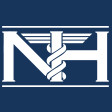Facility: Cobb Hospital
Registered Nurse Oncology-Float
***Sign on Bonus & Relocation Eligible***
The RN Oncology Infusion Therapy Clinician functions under the direction of the Manager Infusion Therapy or other designated leader. The RN Oncology Infusion Therapy Clinician demonstrates knowledge, competency, and clinical expertise in oncology infusion therapy including but not limited to hazardous drug therapies for treating malignant and nonmalignant conditions.
This RN will regularly administer chemotherapy, immunotherapy, antineoplastics agents, hazardous drugs, and targeted therapies. RN will work in an outpatient infusion center though alternate settings could occur.
This individual is responsible for providing safe patient care with an understanding and awareness of age-appropriate and culturally aware needs. The RN Oncology Infusion Therapy Clinician addresses the patient/family biological, emotional, developmental, psychosocial, and education needs and is responsible for delivery of patient care in complex situations. The RN Oncology Infusion Therapy Clinician serves as a clinical resource to nursing staff, operational leadership, and medical staff.
It is expected that all RNs are licensed, knowledgeable and uphold the practice of nursing as outlined by the Georgia Professional Nurse Practice Act and implement the Scope of Practice and Code of Ethics Standards put forth by the American Nurses Association. As a member of the patient services team, it is expected that the individual upholds the
voice of the patient, system policies and procedures while supporting service excellence goals.
They are responsible for attending and participating in staff meetings, in-services, special projects and continued education. Performs other duties as necessary. In this role they can serve as a preceptor for newly hired RN colleagues. Local travel required. Float staff will be required to float between Cobb Hospital HOD's based on need. All sites are within 35 miles of Cobb Hospital.
Core Responsibilities and Essential Functions:
Exemplary Practice and Outcomes A. Performs the Nursing Process (assessment; diagnosis; identification of outcomes; planning; implementation and evaluation) in the performance of clinical care using evidence-based practice, using analytical/critical thinking and ensuring that care is individualized; coordinating care through effective partnerships recognizing that caring is central to achieve optimal patient care outcomes B. Provides relationship-based patient-centered care that is consistent with population-specific characteristics (e.g. age, gender, disease, etc.) in a manner that adapts service delivery to reflect an understanding of cultural diversity C. Always partners with the patient and significant others (as appropriate) using such appropriate methods for setting and purpose (e.g., just in time and planned patient teaching; keeping the patient and significant others updated and making the patients goals the focus of the plan of care). D. Practices using current clinical practice standards including but not limited to chemotherapy and targeted therapies for treating malignant and nonmalignant conditions. E. Meets annual requirements for chemotherapy competence. Teamwork and Collaboration A. Coordinates the delivery and documentation of safe quality patient care that promotes the professional care delivery model. This includes, but is not limited to diverse and inclusive interdisciplinary communication methods (interdisciplinary rounds, case review, etc.); completion of timely documentation and promotion of a respectful, inclusive clinical environment B. Demonstrates teamwork and collaboration by practicing in a manner that is fiscally responsible and promotes the recruitment and retention of all healthcare team members. C. Participates and supports performance improvement inclusive of all stakeholders, research and research utilization to promote safe, quality patient care including initiating and/or leading such activities as well as, promoting an inter/intra-disciplinary process and actively supports/participates in shared governance at all levels in the system. Professional Development and Initiative A. Completes all initial and ongoing professional competency assessments, required mandatory education, and population-specific education. B. Serves as a preceptor and/or or mentor for other professional nurses (and staff or students for all disciplines) to ensure that there is a current and future qualified workforce; modeling the professional practice of nursing and creating a healthy work environment C. Cultivates oncology nursing knowledge and a commitment to providing the highest quality care by engaging in continuing education, earning or maintaining a specialty oncology certification or obtaining 12 continuing education credits annually. Evidence-Based Practice and Research A. Promotes evidence-based practice, nursing research, and performance improvement in nursing. Participates in activities such as value analysis as part of the decision making process in evaluating patient care products. B. Upholds all health care system/organizational policies and procedures and clinical competencies put forth by this job description and professional association (i.e. Oncology Nursing Society) including legal, regulatory and accreditation requirements and standards ensuring by way of example, such goals as TJC Patient Safety Goals and WellStar Health Systems safety absolutes C. Participates in data collection, poses relevant clinical questions to advanced evidence based practice. Consults appropriate experts and uses appropriate resources and evidence to address practice questions. Resources and Support A. Proactively plans for the care of patients across the care continuum in the course of giving direct patient care. B. Participates in the development of protocols and procedures when called upon or through self-initiation in collaboration with care managers and other members of the health care team to achieve best practice outcomes (i.e., decrease in re-admission rates; avoidable days; adverse events; etc.). C. Supports efficient and effective use of human and material resources. Evidence Based Practice and Research
- Promotes Evidence based practice, nursing research and performance improvement in nursing. Participates in activities such as value analysis as part of the decision-making process in evaluating patient care products.
- Upholds all health care system/organizational policies and procedures and clinical competencies put forth by this job description and professional association including legal, regulatory and accreditation requirements and standards ensuring by way of example, such goals as TJC Patient Safety Goals and WellStar Health Systems safety absolutes
- Participates in data collection, poses relevant clinical questions to advanced evidence-based practice. Consults appropriate experts and uses appropriate resources and evidence to address practice questions.
Required Minimum Education:
- Diploma (Nurse) Nursing or Bachelors Nursing-Preferred
Required Minimum License(s) and Certification(s):
All certifications are required upon hire unless otherwise stated.
- Reg Nurse (Single State) or RN - Multi-state Compact
- Basic Life Support or BLS - Instructor
Additional License(s) and Certification(s):
Chemotherapy Competency required through approved provider [Oncology Nursing Society (ONS) or WellStar Oncology Nursing Readiness and Safety (ONRS)]. Upon Hire Required
Required Minimum Experience:
Minimum 2 years direct patient care in clinical field required
Minimum 2 years Outpatient oncology nursing experience Required
Chemotherapy competency Required
Required Minimum Skills:
Ability to read, write and speak the English language.
Strong interpersonal, collaborative skills along with customer service skills required.
Inter- and intra-departmental coordination of patient care activities.
Delegation skills required as Georgia Georgia Registered Professional Nurse Practice Act allows and Wellstar policy defines.
Ability to multi-task essential.
Ability to function in stressful and emergency situations essential.
Strong detail orientation to patient care activities and nursing skills required.
Possess time management skills.
Computer skills required including typing, scanning, using mouse, and other attributes to computing and device use.
Personal time management skills required.
Demonstrates knowledge of and practices within parameters outlined in Georgia Registered Professional Nurse Practice Act.
Ability to be trained to handle Hazardous Drugs per USP guidelines.









